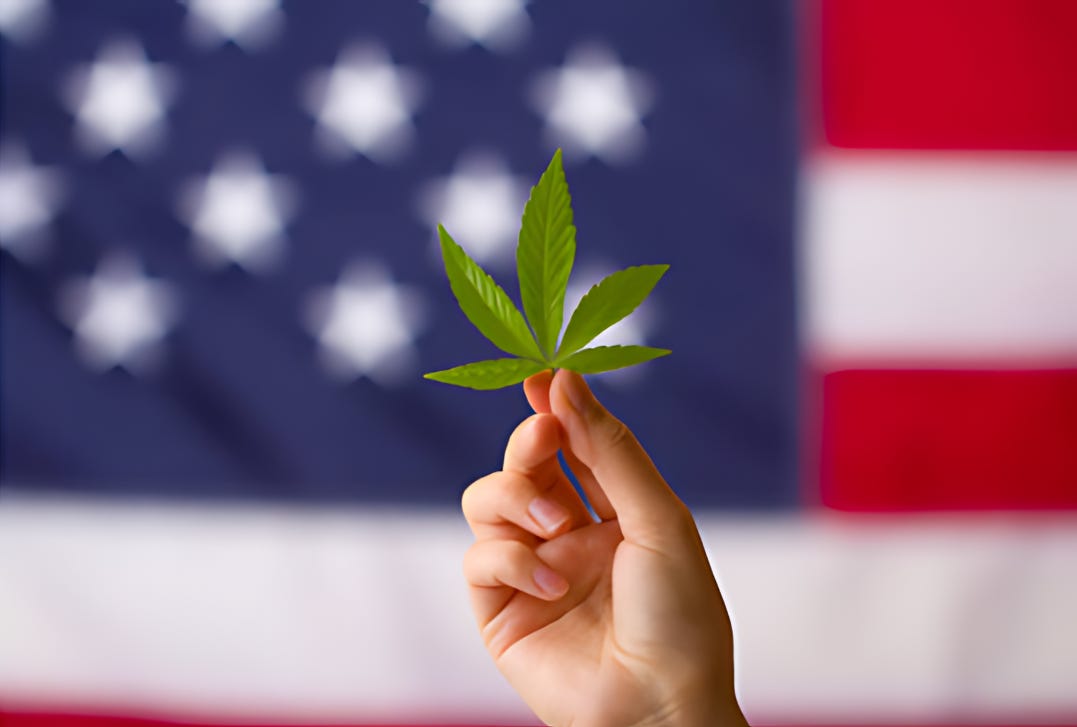The Budget Impact of National Cannabis
Legalization Would Be More Than Taxes, Study Finds
A new study of the prospect for federal legalization of cannabis outlines the many competing effects on Congress’s bottom line.
The study reveals that a modest 10% federal excise tax on cannabis sales could earn up to $4 billion in annual revenue, but the many other impacts on the economy and taxes make the net impact less clear. Federal tax revenue from alcohol, for example, will likely decline as a response to legal cannabis. Cannabis businesses would also become eligible for deducting their expenses from their taxable profits.
The biggest determinant is likely to be the effect of legalization on workers. As per Dr. Stan Veuger, a senior fellow at the American Enterprise Institute (AEI) and the study’s lead author, “In the long(er) run, any meaningful effect on labor force participation would swamp everything else. I do not think we can quite pinpoint what that effect would be, based on our current understanding. In the short run, excise tax revenue is of most importance on the revenue side, while health care spending matters most on the expenditures side.”
The timing of the study is very relevant as the Department of Health and Human Services recently recommended reclassifying cannabis under federal drug laws, signaling a potential shift in federal policy. Currently, 24 states have legalized recreational cannabis use, while 38 permit medical use, creating a complex patchwork of regulations that businesses must navigate.
Last year President Joe Biden called the Drug Enforcement Administration to reconsider cannabis’s classification to reflect a more nuanced understanding of the plant’s uses and impacts.
Beyond Simple Tax And The 3 Points
The study, conducted by Veuger and his colleagues Alex Brill and Brian J. Miller, goes beyond simple tax calculations to examine how legalization could reshape federal healthcare spending. Their analysis suggests that while adding cannabis to federal healthcare programs could increase costs initially, the shift might lead to long-term savings through reduced reliance on more expensive medications, particularly opioids.
Veuger elaborated on how cannabis taxation policies might influence federal-state dynamics and made these three main points:
Federal legalization would likely trigger national legalization, at least of medical marijuana.
The states will likely adopt the federal tax base for their own taxation of cannabis activity and products.
Medicaid coverage of medicinal marijuana will likely be quite controversial.
The research also highlights potential workforce benefits. Legal access to cannabis for pain management could boost labor force participation and reduce absenteeism, though the long-term public health implications remain uncertain.
State-level experiences offer important lessons for federal policymakers. Colorado and Washington, early adopters of legalization, have seen significant tax windfalls but also faced challenges in eliminating illegal markets. The study suggests federal success will require learning from these state-level experiments.
The study outlines several crucial decision points for policymakers. Beyond setting tax rates, legislators must determine how to structure regulatory oversight and integrate cannabis into federal healthcare programs. These choices will largely determine whether legalization delivers its projected financial benefits.
Veuger also indicated some of the results were surprising, “The main thing I hadn’t really thought through before starting this project is that you can think of the net, direct budget impact of cannabis legalization as basically being driven by two main factors: tax revenue (from an excise tax or however you want to tax cannabis) and healthcare spending. The federal government plays such a big role in healthcare spending (through the VA, Medicaid, Medicare, and various subsidy schemes) that it is not inconceivable federal spending on cannabis would exceed the additional federal tax revenue.”
The study was published on 12 April, 2024 in the journal Public Budgeting & Finance.
Our stories may be republished online or in print under Creative Commons license CC BY-NC-ND 4.0. We ask that you edit only for style or to shorten, provide proper attribution and link to our website. AP and Getty images may not be republished.


